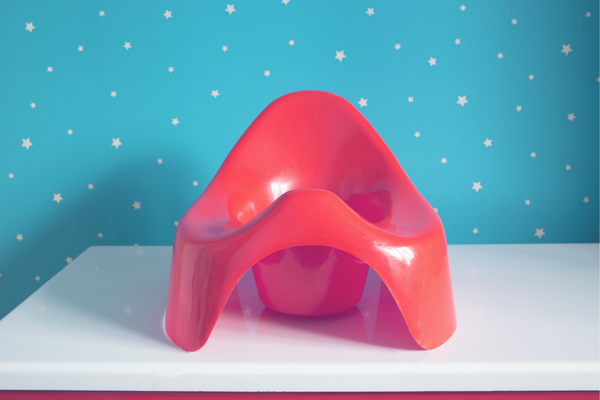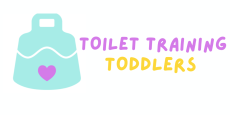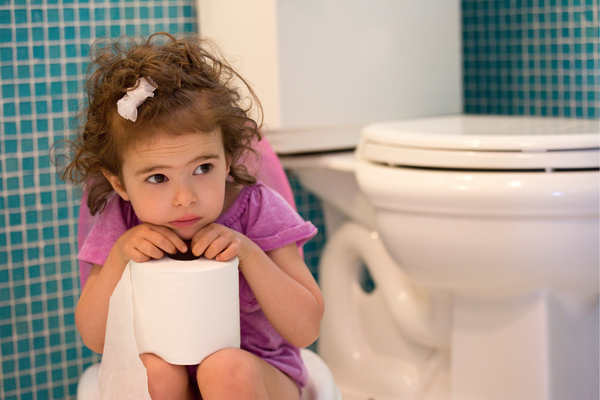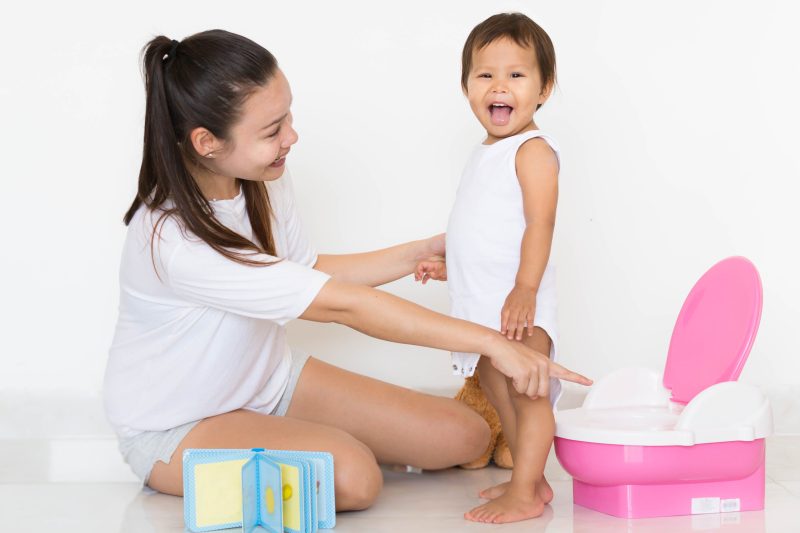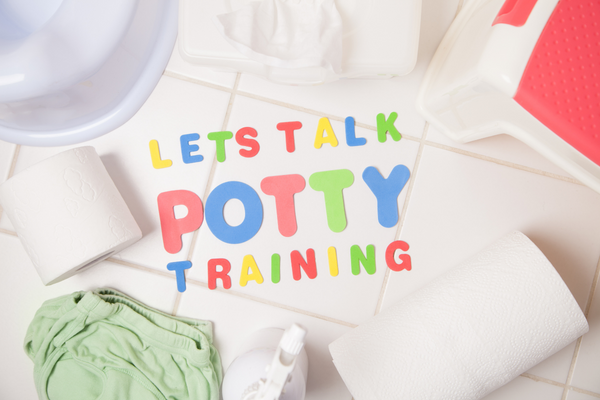Do you have a child who refuses to potty train? Are you feeling exhausted and overwhelmed by the potty training resistance you are experiencing from your toddler?
Take a deep breath, mama, because you are not alone. Resisting potty training is more common than you think and can be caused by a variety of factors.
So take heart because you will get through this, and your child will eventually be out of diapers.
Disclaimer: This blog post contains affiliate links . If you use them, we might be rewarded credit or a commission of the sale. Please note that we only recommend tools that we personally use and love and we always have our readers’ best interest at heart.
Why Is My Toddler Refusing the Potty?
It’s easy to think that your toddler is just being stubborn about using the potty, but actually, there could be more complex factors at play. Understanding the reason behind your toddler’s potty training resistance can help prevent power struggles and create a peaceful transition to toilet training.
Temperament
It’s possible that your child just needs more time and independence when using the potty. Some children are naturally more amenable, while others have strong opinions and behaviors.
Your child might not enjoy being dictated to, particularly around an area that is so personal. Adults are the same. Some of us are people pleasers who are happy to go with the flow, while others push back against boundaries.
Your child might just need some space and autonomy as they figure out this whole potty training business.
Developmental Readiness
Your child might also not be at the right developmental stage to get on board with potty training. Kids work on their own timelines, and your child might just need more time to develop the necessary skills to use the potty.
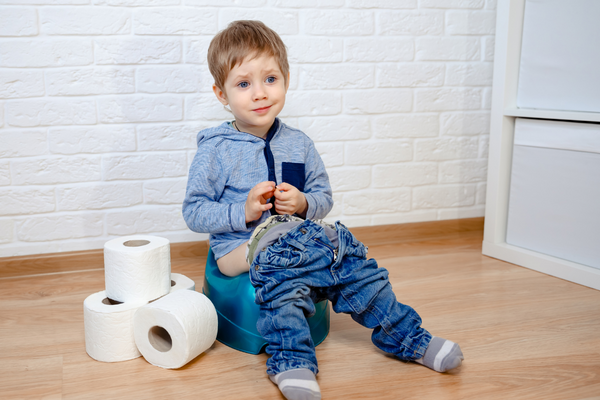
Emotional Maturity
It’s also possible that your child is not emotionally mature enough to deal with the anxiety potty training can bring. They may feel overwhelmed with doing something new, resulting in refusing to use the potty.
Fear
Have you ever considered that using the toilet makes your child feel scared?
They might struggle with the sensation of pooping sitting down, which can make them feel out of control. They may also struggle with the new sensations of using the potty rather than a soft and comfortable diaper..
The sounds of the toilet may also make your child feel uncertain, and they may find a bigger bathroom or flushing the toilet unsettling.
Your child may also fear disappointing you because they know what they are expected to do on the potty, but they may feel reserved about actually doing it.
How to Handle Potty Training Resistance
There are several ways that you can handle potty training resistance, but you need to remember that it will also depend on your family’s unique circumstances and on your child’s personality. Potty training is not a one-size-fits-all, and it may take some time to find a strategy that works for your family.
- Respond, don’t react. This is easier said than done because your toddler resisting potty training can be extremely frustrating for you as a parent. You must remember that this is one of the biggest milestones your child has faced so far, and they will need you to stay calm as they navigate their fears and emotions.
- Watch your tone. Often we think that we are responding in a positive way to our children, but our body language and tone tell a different story. Our children are perceptive, often more than we give them credit for. Being aware of the tone of voice will help your child know that they are supported and loved rather than feeling your frustration and disappointment.
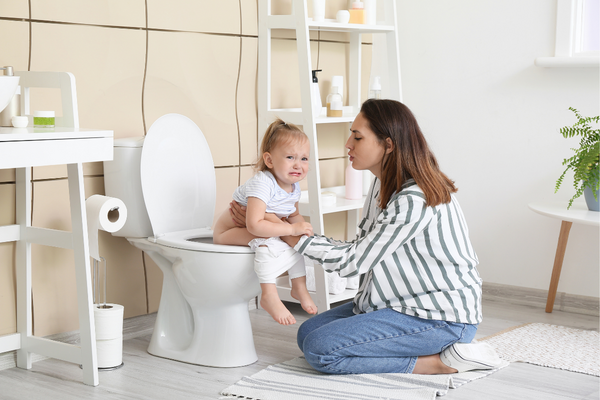
- Empathize. Put yourself in your child’s shoes and imagine how difficult, overwhelming, and maybe embarrassing this could be for them. They know that they should use the potty, and when they don’t, they understand that it can cause you feelings of anger and frustration. But our children need us to empathize with them during this time. Showing love and understanding can go a long way in helping your child feel more comfortable using the potty.
- Stop the power struggle. Your child might need more space to use the potty independently, and they may struggle with your hovering. If you find that there is a power struggle over using the potty, then withdraw from the situation. Let your child know that you trust them to use the potty when they’re ready and give them the space they need to do it autonomously.
- Let them be curious. Your child has probably spent a fair amount of time in the bathroom with you, so if they resist the potty, ask them why. Let them talk to you about their feelings and ask their questions. Maybe they are unsure why using the potty is so important or where the poop goes when you flush. Taking the time to let them ask questions. Even flushing the toilet 50 times can go a long way in easing their anxiety.
- Constipation or UTI. Using the potty may be uncomfortable or painful if your child is constipated or has a UTI. Ensure your child gets plenty of fluids and fiber to help with healthy bowel movements. If you aren’t noticing an improvement, then make an appointment with your doctor.
- Take a break. It is never too late to potty train, so if your child is struggling, put potty training on hold for a while.
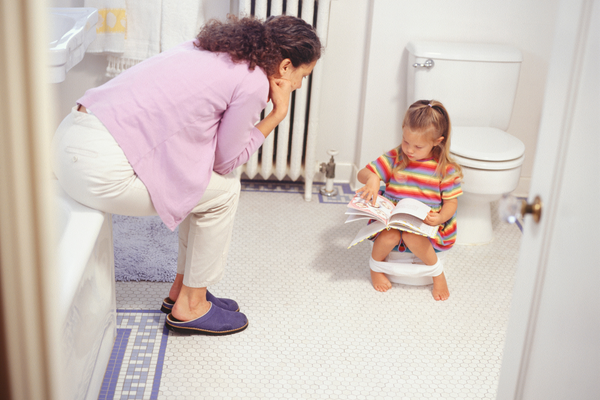
Should I Force my Child to Potty Train?
You should never force your child to use the potty because this can result in further resistance. Not only that, but it can cause serious potty training regression in which your child can develop medical conditions like constipation and UTIs. It can also be emotionally traumatic for your child, particularly if they are not developmentally ready.
Go With Your Child’s Flow
Potty training is an essential part of parenthood, but boy, can it be a challenge. There are many factors to consider, and you just want to do the right thing and help your child develop this new skill.
But sometimes, that means taking a step back and giving them the time and space to sort through their fears, anxieties, and emotions until they are ready to tackle potty training again.
There is no shame in giving your child the space they need to ensure a happy potty training outcome.
